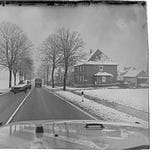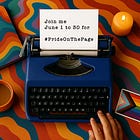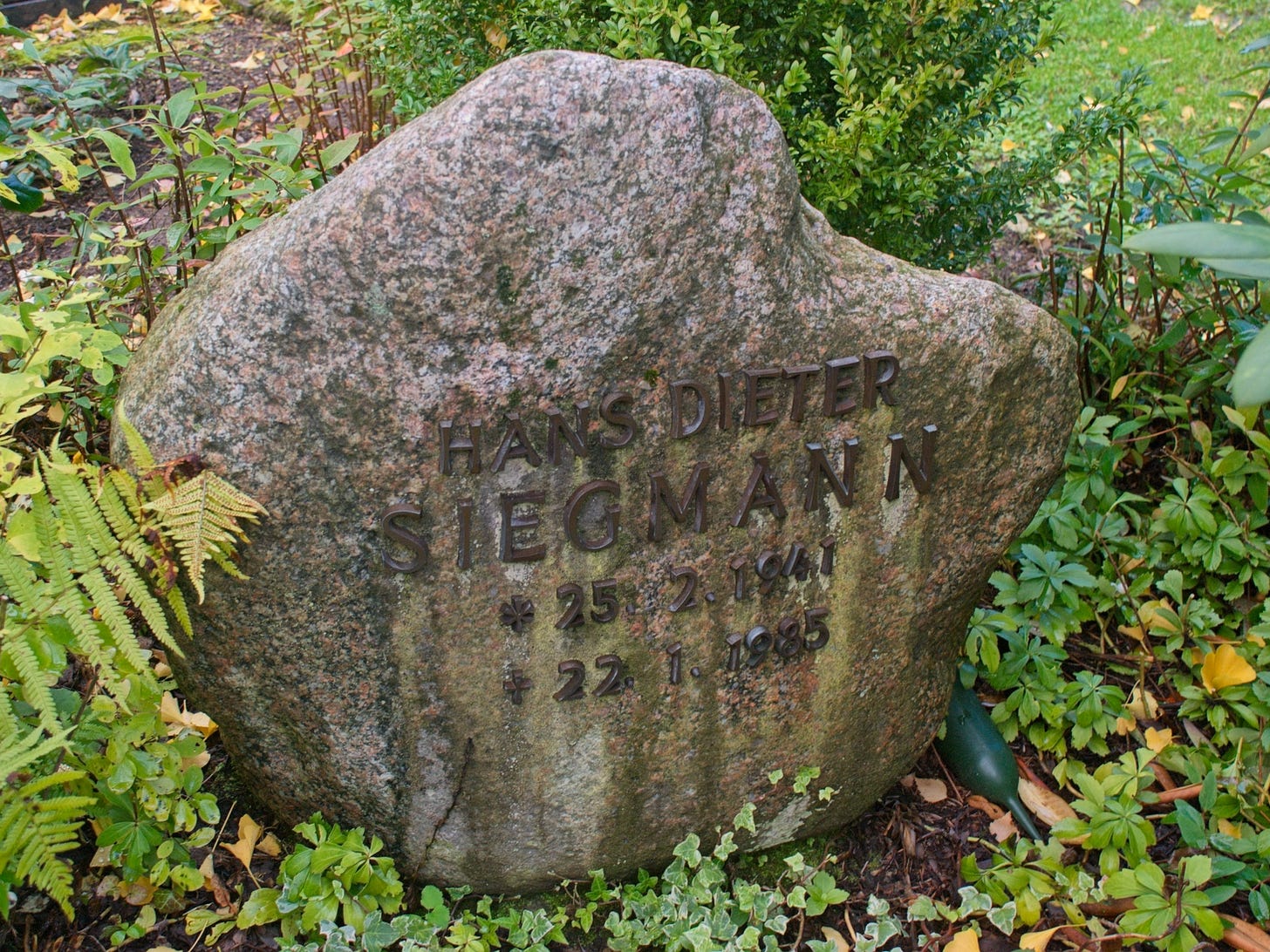#PrideOnThePage Day 9 (June 9): STORM
✨Become the eye of the storm. Speak from its center.✨ What have you survived that others only remember as weather? What quiet did you carry through the wreckage? This is about the clarity within you, not the chaos around you. Write from the stillness you built while everything else broke.
Some storms leave no clear edges.
No single day you can point to and say this is where it ended.
The first real storm of my life broke loose on a winter road in 1985 — the day everything changed and nothing was allowed to show how broken it had become.
What follows is not the whole story. It is not a tidy telling, not a healed arc, not a five-paragraph summary of grief and survival.
It is a center I learned to build — inside chaos, inside loss, inside expectations too heavy for seventeen-year-old shoulders.
It is the quiet I carried when the world demanded composure.
It is the clarity I speak from still.
This is my answer to the prompt:
“Become the eye of the storm. Speak from its center.”
EYE OF THE STORM
→ Others say: that crash, that winter, that storm on the road to Hannover.
→ I say: it was not weather. It was the beginning of a center I live from still.
I. VISUAL MEMORY
[IMAGE — implied: VW Passat Variant, 1985, snow-dusted road, five passengers inside.]
Caption: “You can’t photograph an eye of the storm. You can only live inside it.”
II. DIAGRAM — THE COLLISION
Father driving → overtaking slow car → approaching vehicle → impact → systemic shutdown
→ My age: 17.5
→ Father — 43, driving
→ Mother — 41, pregnant with Johannes.
→ Cornelius — not yet two.
→ Nelson, our dog, in the trunk.
→ Myself — watching, knowing: this is how I will die.
III. AUDIO TRANSCRIPT — PARAMEDIC VOICE
“Phone number?”
“Names?”
“Address?”
I answered.
Calm. Composed. A child adulting before anyone else could.
FOOTNOTE ¹: They sedated me against my will. My first resistance. My first loss of bodily agency.
IV. NONLINEAR SEQUENCE — THE AFTERMATH
→ Hospital bed.
→ No knowledge of family status.
→ Questions, unending rumination.
→ Silence. No answers.
FOOTNOTE ²: I do not know if they didn’t know — or if they refused to tell me.
V. FAMILY DISPERSAL — THE MAP
Father → Hannover → ICU
Mother → Hildesheim → ICU
Cornelius → Gronau → pediatric ward
Me → Alfeld → unknown status
Nelson → deceased VI. UNAUTHORIZED EXIT
→ I walked out of the hospital four days later.
→ Severe coccyx contusion. Six months recovery.
→ They called me a hypochondriac.
FOOTNOTE ³: I knew my body better than they did. That would remain true. A coccyx contusion is a deep bruise (contusion) of the tailbone
VII. MYTHIC STRUCTURE OF SURVIVAL
I did not simply survive. I became:
Atlas: carrying a family not ready to be carried.
Hercules: mucking out the grief others could not face.
Sisyphus: rolling responsibilities uphill — endlessly.
Don Quijote: believing in the possibility of justice where none was offered.
Child voice: Why me? Why now?
Adult voice: Because no one else could.
Body voice: You learned to hold storms in your bones.
VIII. THE QUIET I CARRIED
The calm that answered the paramedic.
The stillness that walked out of the hospital alone.
The choice to remember — in a family that wanted forgetting.
The refusal to accept “it is better this way.”
FOOTNOTE ⁴: It was not better. It will never be better. I carry that loss in the stillness I built.
IX. THE ROAD STILL TRAVELED
→ I drive that rebuilt road still.
→ I remember.
→ Some burdens released. Some not yet.
CULTURAL VOICE: “Life will break you. Nobody can protect you from that.” — Louise Erdrich
Queer structure of memory: This is not a story of closure. This is not a story of healing. This is an eye I live inside.
X. LINEAGE & CITATION
Memory as archive.
Body as witness.
Silence as teacher.
Polyphonic survival as queer lineage.
This is my contribution to that lineage. I speak from the eye still.
FOOTNOTES:
¹ They sedated me against my will. My first resistance. My first loss of bodily agency.
² I do not know if they didn’t know — or refused to tell me.
³ I knew my body better than they did. That would remain true.
⁴ It was not better. It will never be better. I carry that loss in the stillness I built.
This peotry I wrote speaks from the center — the crash, the clarity that rose in me there.
Yet what the piece does not say:
My father died on January 22nd, 1985. I was not allowed to visit him before he died. He was buried on January 29th.
I was told to hold it together. Be composed. Appear strong. I just wanted to be left alone — not pitied, not swarmed by false condolences. Not to hear "Mein Beileid" three hundred times — half relief (thank God not me), half performance (poor child).
I hated them all. I hated the ordeal.
Masses of people wanting something from me when I had nothing left to give. No true giving in return. No space for truth.
I sat there in the chapel, forced to make a solemn face — but please do not cry. I obeyed.
Since then, I have never again been able to hold it together in a funeral chapel. The last time I tried, I fled the room, completely undone. I stood outside sobbing — not just for the one we had lost that day, but for all the losses I still carry. I sobbed all the way to my car. Later, I visited the graves — my late partner, my father, my brother, my mother, my grandmother — and the sobbing returned.
What the piece also does not show is what came after the crash:
How I took over my father’s responsibilities, and partly my mother’s.
How I shared child-rearing duties with my mother as soon as my second brother was born.
How I went to school, prepared for my Abitur, and simultaneously half-parented my brothers, kept the household, tended the garden, supported my mother — because that was what responsible grown daughters do. That was how we were raised: to serve, to protect, to care, to be selfless, to need nothing and no one.
I had no spare time. Of course I rose for my baby brother in the night when he was thirsty, when he needed care. My mother and I alternated nights: one for her, one for me.
Was I tired? Of course. Did it matter? Not to anyone. The work had to be done. The family had to be held. That was my responsibility now, wasn’t it. That was how we were raised.
To put ourselves on the back burner — or erase ourselves entirely — because something else was always more important. Always needed more care.
Thank you for listening, supporting, for reading, for walking this path with me.
How to show your appreciation…
Consider clicking the heart ❤️ at the top or bottom of the post. It helps others discover this newsletter and brightens my day.
Wild Lion*esses Lookout is a working studio—a space for creative work, vision, and collaboration.
Here, I share poetry, photography, digital art, and design—alongside professional support in editing, ghostwriting, authenticity reads, and consulting. This is a grounded space shaped by lived experience, artistic skill, and care. If this work resonates, consider becoming a paid subscriber for $10/month. You can see what I offer paid subscribers and founding members on my About page
Prefer to give once?
You can leave a one-time donation or buy me a coffee and Monty’s cat food, or just to say “I see you.” Every bit is felt.
Your support keeps this space honest, independent, and alive.
Thank you. 💚










